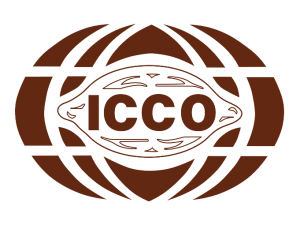The Secretary General of the United Nations Conference on Trade and Development (UNCTAD) on 19 September 2012 convened a meeting of the parties that had negotiated and concluded the International Cocoa Agreement, 2010, pursuant to Article 57, paragraph 3 of the Agreement.
The meeting noted that the Governments of six cocoa exporting countries; namely the Democratic Republic of Congo, Côte d’Ivoire, the Dominican Republic, Gabon, Guinea and Togo, accounting for 43.17% of votes as set out in Annex “A” to the Agreement and the Governments of importing countries, comprising the European Union and Switzerland, accounting for 54.90% of votes, as set out in Annex “B” of the Agreement, have deposited their instruments of ratification, acceptance, approval or accession, or have notified the depositary that they will apply the Agreement provisionally when it enters into force. (These countries are listed in Annex I of the decision, reproduced below).
These Governments decided that they would put the International Cocoa Agreement into force provisionally among themselves in whole as of 1 October 2012.
The Governments further decided that any State which, by 30 September 2012, deposits its instrument of ratification, acceptance, approval or accession, or notifies the depositary that it will apply the Agreement provisionally when it enters into force, shall be deemed to be listed in Annex I to the present decision.
During the course of the meeting, the governments of countries that are party to the International Cocoa Agreement, 2001 issued formal statements to the International Cocoa Council, confirming that they are in the process of signing and ratifying the new Agreement and that they expect to complete these formalities by the end of the upcoming 2012/2013 cocoa year.
As a result, the International Cocoa Agreement, 2010 is on track to have 48 Member countries, four more than the 2001 Agreement, including four new exporting countries: Costa Rica, the Democratic Republic of Congo, Guinea and Indonesia. Together, the 19 exporting country members of the Agreement will account for over 95% of global cocoa output, while the 29 importing country members will account for approximately 55% of global imports.
The full text of the International Cocoa Agreement, 2010, can be downloaded in Arabic, Chinese, English, French, Russian and Spanish, by clicking here.
Click here to see the official notification of entry into force of the Agreement from the United Nations.
Annex I
INTERNATIONAL COCOA AGREEMENT, 2010
| Exporting Members |
Importing Members |
| Congo (Democratic Republic) |
European Union: |
| Côte d’Ivoire |
– Austria |
| The Dominican Republic |
– Belgium |
| Gabon |
– Bulgaria |
| Guinea |
– Cyprus |
| Togo |
– The Czech Republic |
|
– Denmark |
|
– Estonia |
|
– Finland |
|
– France |
|
– Germany |
|
– Greece |
|
– Hungary |
|
– Ireland |
|
– Italy |
|
– Latvia |
|
– Lithuania |
|
– Luxembourg |
|
– Malta |
|
– Netherlands |
|
– Romania |
|
– Poland |
|
– Slovakia |
|
– Slovenia |
|
– Spain |
|
– Sweden |
|
– United Kingdom |
|
Non-members of the European Union: |
|
– Switzerland |

 ABIDJAN, 23 November 2012–The Abidjan Cocoa Declaration—outlining a course of action to bring about major changes in the cocoa sector–was signed at the end of the successful first-ever edition of the World Cocoa Conference, held in Abidjan, Côte d’Ivoire during the week of 19-23 November 2012.
ABIDJAN, 23 November 2012–The Abidjan Cocoa Declaration—outlining a course of action to bring about major changes in the cocoa sector–was signed at the end of the successful first-ever edition of the World Cocoa Conference, held in Abidjan, Côte d’Ivoire during the week of 19-23 November 2012.
 The Conference was officially opened by the President of Côte d’Ivoire, His Excellency Dr. Alassane Ouattara (pictured top), with the Ivorian Prime Minister also inaugurating the adjacent Exhibition. Delegates were also able to hear an address on the subject of the worst forms of child labour by the First Lady of Côte d’Ivoire, Madame Dominique Ouattara, who leads the country’s programme to eliminate the practice.
The Conference was officially opened by the President of Côte d’Ivoire, His Excellency Dr. Alassane Ouattara (pictured top), with the Ivorian Prime Minister also inaugurating the adjacent Exhibition. Delegates were also able to hear an address on the subject of the worst forms of child labour by the First Lady of Côte d’Ivoire, Madame Dominique Ouattara, who leads the country’s programme to eliminate the practice.